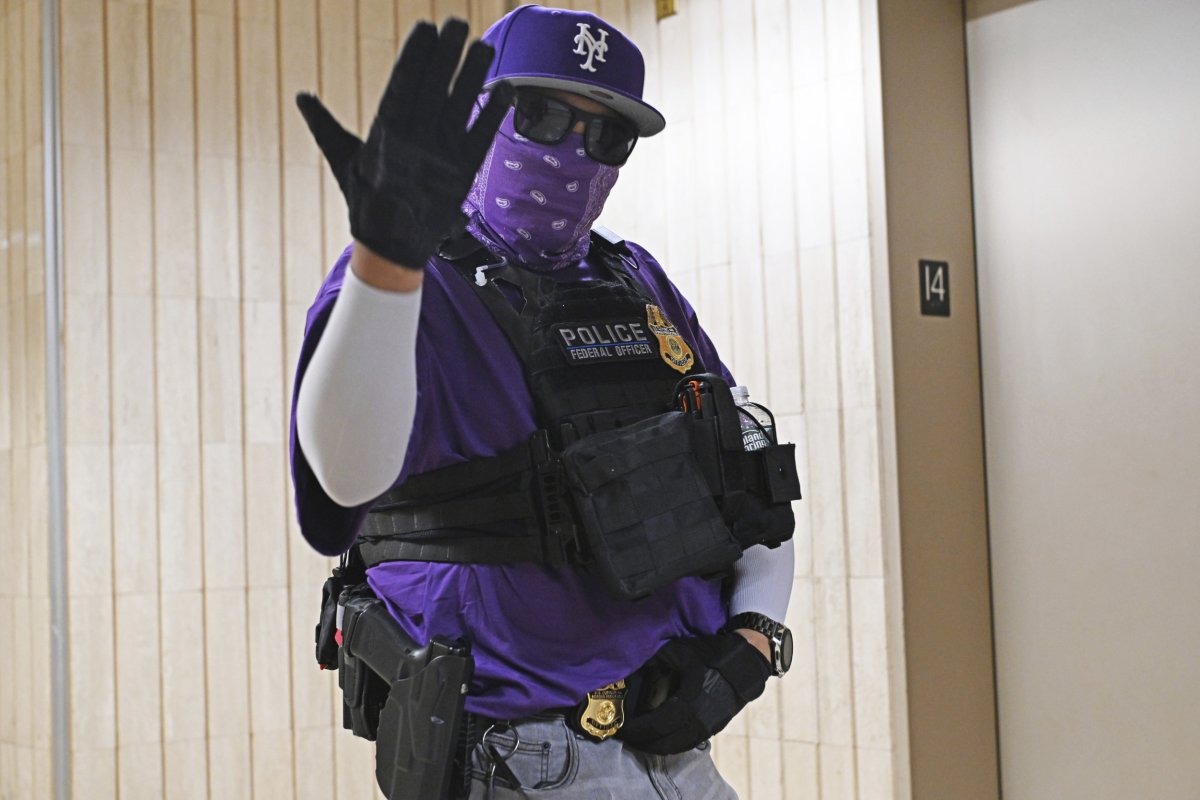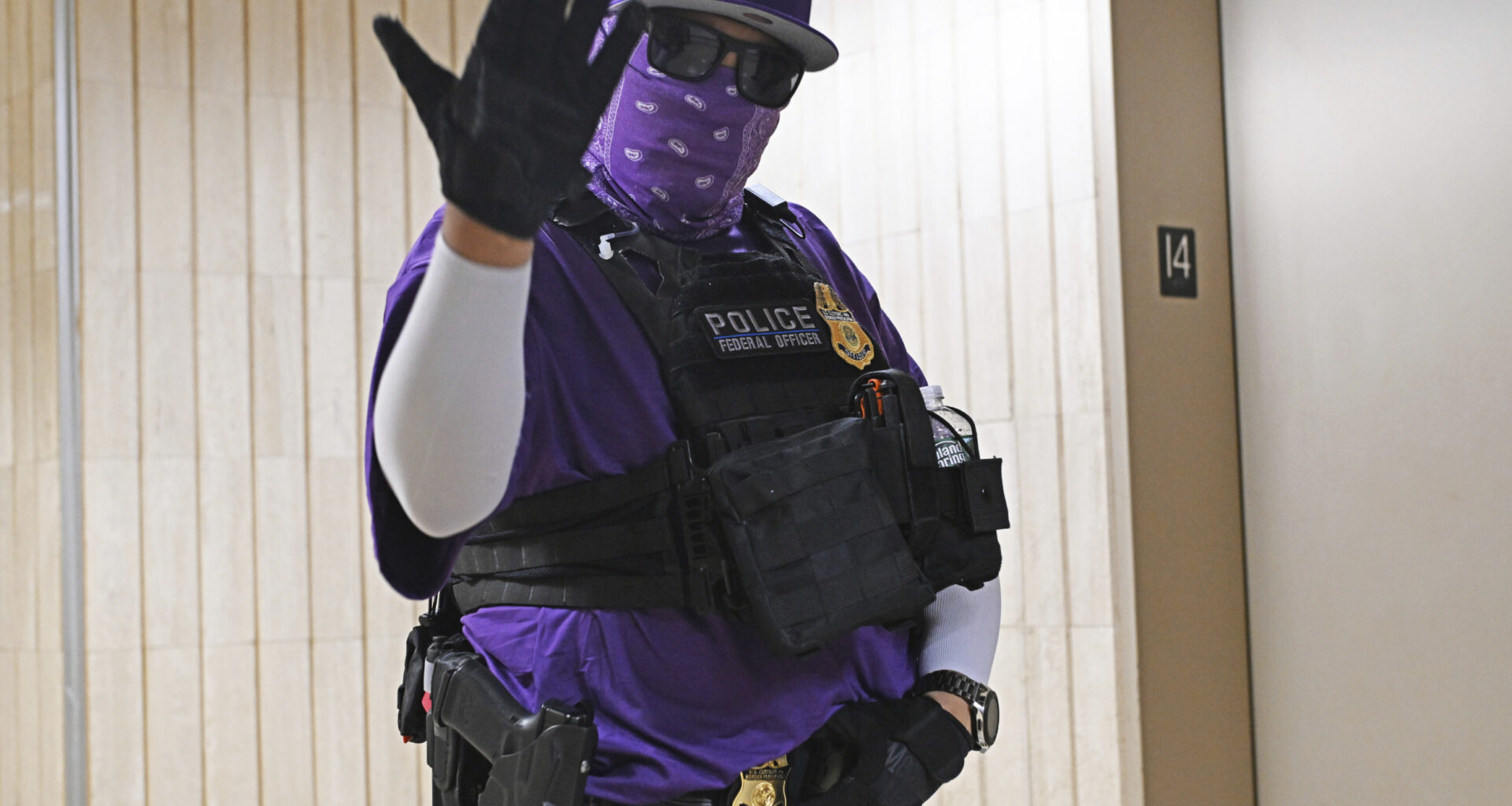A federal judge has ruled that she cannot stop the Trump administration’s transfer of five West African men to Ghana, despite acknowledging that the men face the risk of torture or persecution if ultimately repatriated to their home countries.
U.S. District Judge Tanya Chutkan said Monday, September 15, that her “hands are tied” and that she was “alarmed and dismayed by the circumstances under which these removals are being carried out.”
Newsweek contacted the Trump administration and the Government of Ghana for comment via email outside of normal office hours on Tuesday.
Why It Matters
The case goes beyond the fate of five men. It highlights the Trump administration’s growing reliance on third-country transfers to sidestep U.S. court protections, raising questions about whether the government is complying with international obligations under the Convention Against Torture.
It also underscores the limits of judicial power when deportations are tied to diplomatic agreements, leaving judges unable to intervene even when they warn of life-or-death consequences.
At stake is not only the treatment of individual migrants but also the precedent such removals set for U.S. immigration policy and America’s standing on human rights.

Immigration courtrooms in NYC’s Federal Plaza – federal agents wait throughout the day and react rapidly when they see someone on their list of detainees.
Immigration courtrooms in NYC’s Federal Plaza – federal agents wait throughout the day and react rapidly when they see someone on their list of detainees.
Andrea Renault/STAR MAX/IPx/AP
What To Know
The case involves five men from Nigeria and The Gambia who were granted protection under U.S. immigration law after immigration judges concluded they were more likely than not to face torture or death if returned to their home countries.
Despite those rulings, the men were taken from detention facilities in the early hours of September 5 and flown to Ghana aboard a U.S. military plane. Some plaintiffs allege they were restrained in straitjackets for as long as 16 hours.
Upon arrival, the men were placed in Dema Camp, a remote site under armed guard. Lawyers for the men said Ghanaian officials told them they would soon be deported to Nigeria and The Gambia, contrary to the protections they had won in U.S. courts.
One plaintiff, identified as K.S., has already been returned to The Gambia, where he remains in hiding, according to court filings.
The Trump administration argued that it secured diplomatic assurances from Ghana that the men would not be sent to countries where they could face torture.
However, Chutkan noted in hearings that Ghana appeared to be violating those assurances. Government lawyers conceded the practice “is not okay” but told the court the U.S. “does not have the power to tell Ghana what to do.”
Chutkan emphasized that her court could not compel either the executive branch to act in foreign policy matters or Ghana’s government to change course. “Its hands are tied,” she wrote, even while warning that the transfers “may have been designed to evade” the legal protections previously ordered.
Data from the Trump administration suggest a steady rise in immigrants self-deporting, after officials strongly encouraged those without legal status to voluntarily leave. Controlling illegal immigration was a central pillar of Trump’s 2024 election campaign, during which he promised to put America first and secure the southern border.
Newsweek has analyzed numbers released by U.S. Immigration and Customs Enforcement (ICE) under a Freedom of Information Act (FOIA) request, which provided recent records of immigrants to depart the U.S. through July 31, 2025.
Since President Donald Trump took office on January 20, ICE had deported 145,419 illegal immigrants from its detention centers, peaking in June with a total of 27,970.
Ghana Comment
The Ghanaian government has rejected claims that it is endorsing U.S. immigration policy.
On Monday, Ghana’s minister for government communications, Felix Kwakye Ofosu, told the Associated Press that 14 West Africans deported from the U.S.—including the five plaintiffs—had already left for their home countries.
But later that evening, lawyers representing four of the men said they had spoken with their clients, who were still being held in Ghana under armed guard.
Foreign Minister Samuel Okudzeto Ablakwa told reporters in Accra that the decision to accept the deportees was based on regional solidarity, not financial incentives. “We just could not continue to take the suffering of our fellow West Africans,” Ablakwa said, adding that “for now, the strict understanding that we have with the Americans is that we are only going to take West Africans.”
Nigeria’s Ministry of Foreign Affairs said it had not been briefed about its nationals being sent first to Ghana.
“We have not rejected Nigerians deported to Nigeria. What we have only rejected is deportation of other nationals into Nigeria,” spokesperson Kimebi Imomotimi Ebienfa told the AP.
Similar Deportations
The September 15 ruling follows similar disputes over the administration’s deportation tactics. In recent months, courts have repeatedly clashed with the administration over deportation issues, intervening in cases involving children and adults alike.
In L.G.M.L. v. Noem, a judge blocked the removal of 76 Guatemalan children taken from shelters at night, ruling the transfers likely violated federal protections, while Judge Sparkle Sooknanan separately halted a plan to deport more than 600 unaccompanied Guatemalan children over Labor Day weekend.
The Supreme Court ordered the government to return Kilmar Abrego Garcia after he was deported to El Salvador despite a court order barring his removal, and in Melgar-Salmeron v. Bondi, a man was deported to El Salvador just minutes after the Second Circuit stayed his removal, prompting a court order for his return.
In another case, a gay Guatemalan man was deported first to Mexico and then to Guatemala, where he went into hiding, leading Justice Sonia Sotomayor to warn that the practice raised grave concerns about torture and persecution risks.
What People Are Saying
U.S. District Judge Tanya Chutkan said in a 16-page opinion issued Monday, her court lacked jurisdiction to intervene in the deportations: “The court does not reach this conclusion lightly,” Chutkan wrote. “It is aware of the dire consequences Plaintiffs face if they are repatriated. And it is alarmed and dismayed by the circumstances under which these removals are being carried out, especially in light of the government’s cavalier acceptance of Plaintiffs’ ultimate transfer to countries where they face torture and persecution.”
Lee Gelernt of the American Civil Liberties Union said September 15, 2025: “There’s no reason why the administration should require a court to tell them to obey the laws prohibiting the transfer of individuals to countries where it’s likely they will be tortured and persecuted.”
What Happens Next
Next steps remain unclear: the deported men’s lawyers may appeal Judge Chutkan’s ruling, but her finding that the court lacks jurisdiction limits the chances of judicial relief. Meanwhile, one plaintiff has already been sent to The Gambia, and the others face imminent removal from Ghana, placing their fate largely in that government’s hands.
The case could spark diplomatic fallout in Accra, where opposition leaders have questioned the legality of accepting non-Ghanaian deportees, and may fuel broader scrutiny of the Trump administration’s strategy of using third-country transfers to sidestep U.S. legal protections and international obligations.

